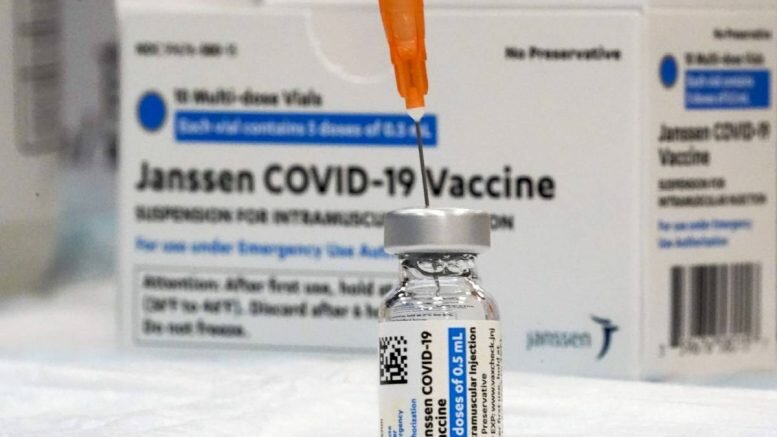A Danish professor fears that Denmark’s “no” to AstraZeneca and Johnson & Johnson might increase vaccine skepticism in countries that use these two vaccines.
Michael Bang Petersen is a professor of political science at Aarhus University and leader of the Hope project, which examines people’s behavior during the pandemic in several different countries.
He believes that it is not only the Danish vaccine program that is affected by the decision to exclude two vaccines. He is afraid that vaccine skepticism will increase in other countries that already use these two vaccines, which, according to the professor, do not need negative publicity.
No one lives in isolation
“What one country does is mentioned in the news in other countries. They’re in the same boat out in the world. The actions of one country have consequences on others,” he said. He believes that the Danish health authorities should keep this in mind.
Of course, they must first and foremost deal with conditions in Denmark and the Danes’ health. Still, one must take the international situation into account, Bang Petersen noted.
The two vaccines have been removed from the Danish vaccine program since they have been associated with rare but serious side effects. In Norway, the government’s expert committee will present its assessment of these vaccines by May 10.
Professor Bang Petersen states that the Hope project does not yet have data on how the Danish decision to exclude two vaccines has affected most Danes, nor how the news has been received in other countries. After all, the decision was made recently.
Clear trend
But there was a clear trend when AstraZeneca was first paused in Denmark in mid-March.
“We can see from data collected in other countries that the willingness to get vaccinated was affected in European countries. Until then, it was increasing. So it may well be that this news slowed down a positive development,” Bang Petersen said.
He believes that the question of what impact the Danish decision has internationally does not have a large place in the Danish debate.
Furthermore, it seems that the exclusion of two vaccines hasn’t led to any flourishing of skepticism among the Danish population.
“This is partly due to the fact that the Danes have great confidence in their health authorities and in those who make the decisions,” the professor concluded.
Source: © NTB Scanpix / #Norway Today / #NorwayTodayNews
Do you have a news tip for Norway Today? We want to hear it. Get in touch at [email protected]






The most important thing is to read the Vaccine DATA! What’s inside the formula?
It’s like asking about the ingredients of a food!is there something deadly or good for your body! against any viruses! Do you have an allergy? I think you should leave to people what kind of vaccine they want to be inoculated! All I know my family was inoculated by Dr.Sahins BioNTech/Pfizer. We are happy&healthy! No side-effects from us NOTHING! This is blogosphere sharing opinions only! I am not advertising! Daddy is a former Prof. Surgeon read the DATA of Pfizer!
Interesting. I have seen you posting on other forums, GD – was it Washington Post or Independent or both? – and now you pop up here.
As to Astrazeneca … or whatever it is calling itself now … besides clotting, it is being linked to causing the previously rare immune system disorder Guillain-Barre syndrome (GBS). The Johnson & Johnson – Janssen – vaccine is also being criticized in this European Medicines Agency report:
https://www.ema.europa.eu/en/news/meeting-highlights-pharmacovigilance-risk-assessment-committee-prac-3-6-may-2021
Citizens and governments should not allow themselves to be stampeded into mass vaccinations … by professors … or promoters … or other talking heads … unless medical authorities are absolutely certain the vaccines are safe, and such a deeply affecting disease requires a deeply affecting vaccine which requires time to study for side effects, including unforeseen longterm side effects.
It is a terrible dilemma for medical administrators and political leaders: they are cruelly pushed to act in time by the virus itself and their first impulse is “the greater good,” but laudable impulses could lead to longterm tragedy as in the 100 cases of lifelong narcolepsy following the 2009 adjuvant swine flu vaccinations.
What was the swine flu death rate of unvaccinated children, for comparison?